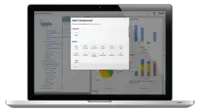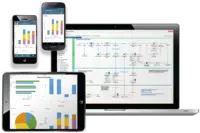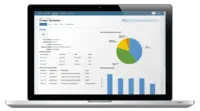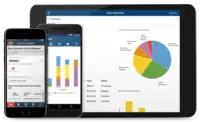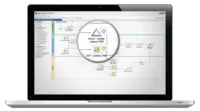Overview
What is Appian?
Appian is a low-code development and business process management platform. It features drag-and-drop design for app building, automated work processes, unified data management, and cloud-based deployment.
Awards
Products that are considered exceptional by their customers based on a variety of criteria win TrustRadius awards. Learn more about the types of TrustRadius awards to make the best purchase decision. More about TrustRadius Awards
Popular Features
- Platform Scalability (73)9.494%
- Reusability (75)9.494%
- Drag-and-drop Interfaces (72)8.989%
- Visual Modeling (73)8.888%
Reviewer Pros & Cons
Pricing
Appian Community Edition
$0
Application - Input-Only
$2
Application - Infrequent
$9
Entry-level set up fee?
- No setup fee
Offerings
- Free Trial
- Free/Freemium Version
- Premium Consulting/Integration Services
Product Demos
APPIAN DEMO RECORDING SESSION # 91-9866955524
Appian Developer Tutorial for Beginners | Appian Training
APPIAN DEMO
APPIAN DEMO | Harsha Trainings |
Features
Product Details
- About
- Competitors
- Tech Details
- Downloadables
- FAQs
What is Appian?
Appian provides a software development platform that combines Full-Stack Automation and enterprise low-code to rapidly deliver business applications. Appian can be used to improve customer experience, achieve operational excellence, and simplify global risk and compliance.
Appian is a platform for building enterprise software applications. Appian boasts running some of the most important processes at companies like Enterprise Rent-A-Car, Aviva, Dallas/Fort Worth International Airport, and the US Department of the Treasury.
Some Appian use cases include - Intelligent Business Process Management Systems (iBPMS), Dynamic Case Management (DCM), Digital Process Automation (DPA), Robotics Process Automation (RPA), and Low-code Development.
Appian Features
Low-Code Development Features
- Supported: Visual Modeling
- Supported: Drag-and-drop Interfaces
- Supported: Platform Security
- Supported: Platform User Management
- Supported: Reusability
- Supported: Platform Scalability
Appian Screenshots
Appian Videos
Appian Competitors
- OutSystems
- Pega Platform
- Salesforce
Appian Technical Details
| Deployment Types | On-premise, Software as a Service (SaaS), Cloud, or Web-Based |
|---|---|
| Operating Systems | Windows, Linux |
| Mobile Application | Apple iOS, Android, Windows Phone, Blackberry, Mobile Web |
Appian Downloadables
- Enterprise Checklist: Pave The Path To Digital Prowess With Low-Code Platforms
- The BPM Guide: Accelerating Digital Transformation
- The Case Management Guide
- Appian Product Overview
- Appian Premier Support
- Deliver Customer Experience Excellence
- Appian for Employee Experience
- Appian Intelligent Contact Center™ Platform
- The Total Economic Impact™ Of Appian
- The 2021 Ultimate Low-Code Automation Buyer's Guide


